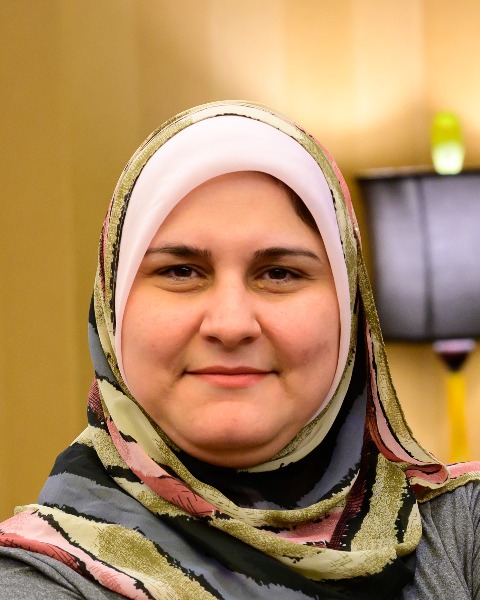Extension Education Evaluation
Strengthening Evaluation Practices Using a Regional Evaluation Capacity Building Model: Evaluation Through the Lens of the Western Regional Evaluation Network
-

Najat Elgeberi, PhD
Assistant Professor for program Evaluation
University of Nevada Reno
Las Vegas, Nevada, United States -

Najat Elgeberi, PhD
Assistant Professor for program Evaluation
University of Nevada Reno
Las Vegas, Nevada, United States -

Vikram Koundinya, PhD
Associate Professor of Extension & Evaluation Specialist
University of California-Davis
Davis, California, United States -

Vikram Koundinya, PhD
Associate Professor of Extension & Evaluation Specialist
University of California-Davis
Davis, California, United States -
NG
Nav Ghimire, Ph.D.
Associate Director of UI Extension
University of Idaho Boise
Boise, Idaho, United States -
NG
Nav Ghimire, Ph.D.
Associate Director of UI Extension
University of Idaho Boise
Boise, Idaho, United States -
MH
Mary Halbleib, Masters (she/her/hers)
Professor (Practice)
Oregon State University, Oregon, United States -
LR
LaJoy R. Spears, Ph.D.
Assistant Professor, Evaluation Specialist
New Mexico State University, New Mexico, United States -
LR
LaJoy R. Spears, Ph.D.
Assistant Professor, Evaluation Specialist
New Mexico State University, New Mexico, United States -

Alda Norris, PhD (she/her/hers)
Evaluation Specialist and Civil Rights Compliance Coordinator
Institute of Agriculture, Natural Resources and Extension, University of Alaska Fairbanks, Alaska, United States -
KS
Kristina Sayama, MPA, CM
Extension Agent II / Instructor of Community Development / IOA-LSAMP Campus Coordinator
University of Guam, Guam, United States -
CS
Christina Sanders, Ph.D.
Director Division of Governmental Studies and Services
Washington State University Extension, Washington, United States -

Alda Norris, PhD (she/her/hers)
Evaluation Specialist and Civil Rights Compliance Coordinator
Institute of Agriculture, Natural Resources and Extension, University of Alaska Fairbanks, Alaska, United States
Presenter(s)
Author(s)
Presenter(s)
Author(s)
Presenter(s)
Author(s)
Presenter(s)
Author(s)
Presenter(s)
Location: Room 203
Abstract Information: Since the evolution of evaluation as a discipline it has been a challenge to find trained professionals who can serve as evaluation specialists. The challenge is further complicated in organizations with limited budgets or that are yet to fully understand the value of evaluation for communicating impact. Cooperative Extension System is one such organization operating with limited budgets without dedicated evaluation specialists in several states. In this roundtable, we will discuss a regional model created by Extension Directors in the western region and territories to address this issue and support the capacity building of its professionals. In 2018, Extension Directors of this region decided to bring evaluation specialists nested within extension together in a group named Western Region Evaluation Network (WREN). The group created a joint work platform based on Preskill and Boyle's Evaluation Capacity Building (ECB) model (2008). This model encourages knowledge exchange, resource development, peer reviewing, and collaboration between the WREN members. By presenting our ECB model and the resources we have created so far, we hope to generate a lively roundtable discussion on what participants think are our model's strengths and areas of improvement, the adaptability of our model to their context, and the potential for collaborations.
Relevance Statement: The limited availability of resources for evaluation capacity building poses significant challenges for communicating extension programs' impact and public value. To address this challenge, Extension Directors of the western region and territories formed the Western Regional Evaluation Network (WREN) in 2018 to initiate a regional Evaluation Capacity Building (ECB) model. WREN consists of representatives from 11 states and territories. Regionalization is one of the strategies to offer quality services despite the limited resources (Holz-Clause, Koundinya, Glenn, & Payne, 2012); it facilitates better coordination of resources and uniformity and consistency of services (Miller, 2006). Our regional team used a systematic process to design our strategies using Preskill and Boyle's model (2008) for Evaluation Capacity Building. The model reimagines the process by proposing both organizational factors and teaching-learning processes influence the success of ECB. Through developing the team's mission, guiding principles, organizational structure, and plan of work, the need for three subgroups emerged (1) program development and evaluation, (2) impact assessment and storytelling, and (3) reviewing the products developed by the team or within the individual states and territories. These subgroups create and share existing evaluation tools, training materials, and needs assessment materials among the network members. The reviewing committee provides peer review services for the evaluation, needs assessment, and other products. Network specialists also established a long-term plan to develop educational materials, including ready-to-use survey templates, educational videos that demystify evaluation terminologies for extension practitioners, and tutorials on developing an evaluation starting with the planning phase and ending with reporting the results. During this roundtable, team members will present the main components of Preskill and Boyle's ECB Model and the participatory approach employed to design our ECB efforts. The team will also share available regional resources, invite participants' feedback on our strategies and products, and encourage them to share their ECB experiences. We anticipate lively discussion on our model's strengths and areas of improvement and how other Extension regions, nonprofit organizations, and multi-state teams can adapt it to reimagine their Extension ECB practices. We hope that driving these discussions about the ECB model will encourage more evaluation specialists from other states to adopt this model and help WREN benefit from their experiences to improve it. The regional approach to addressing ECB has implications for designing professional development in Extension and similar non-formal educational settings that we hope will impact the evaluation quality positively.
References: Holz-Clause, M., Koundinya, V., Glenn, S., & Payne, J. M. (2012). Regional of the Iowa State University Extension system: Lessons learned by key administrators. International Journal of Agricultural Management & Development, 2(1): 33-40. Miller, R. D. (2006). Regionalizing police services. Borough News Magazine, 6(6). Preskill, H., & Boyle, S. (2008). A multidisciplinary model of evaluation capacity building. American Journal of Evaluation. doi: 10.1177/1098214008324182 Preskill, H., & Boyle, S. (2008). A multidisciplinary model of evaluation capacity building. American Journal of Evaluation. doi: 10.1177/1098214008324182
